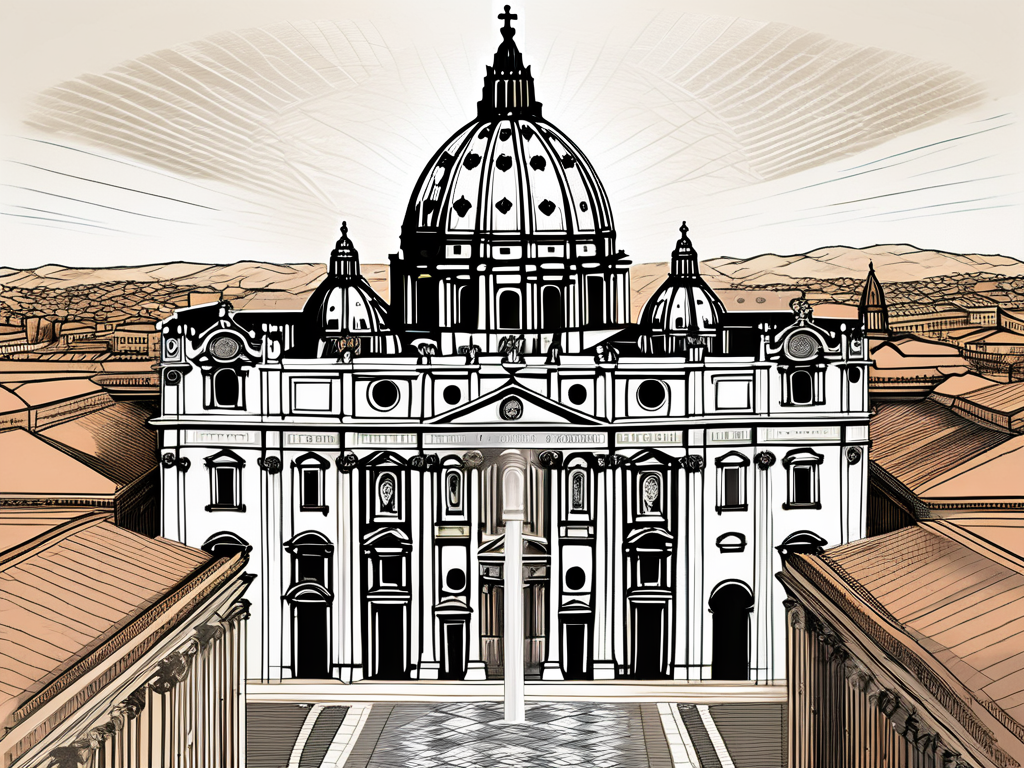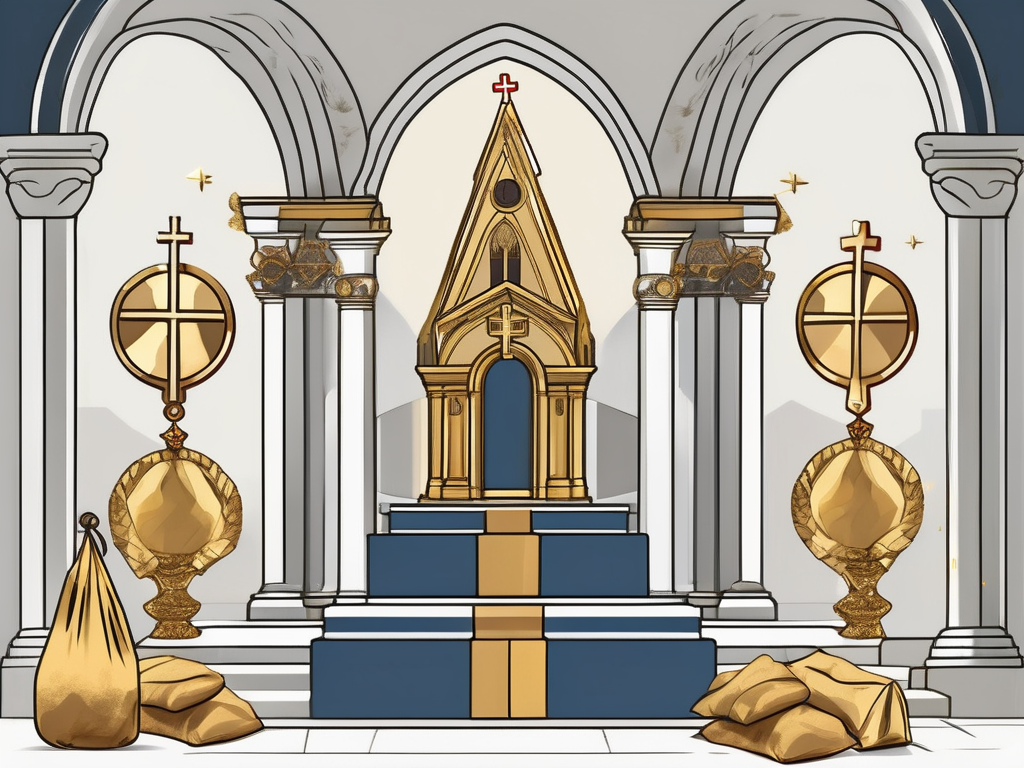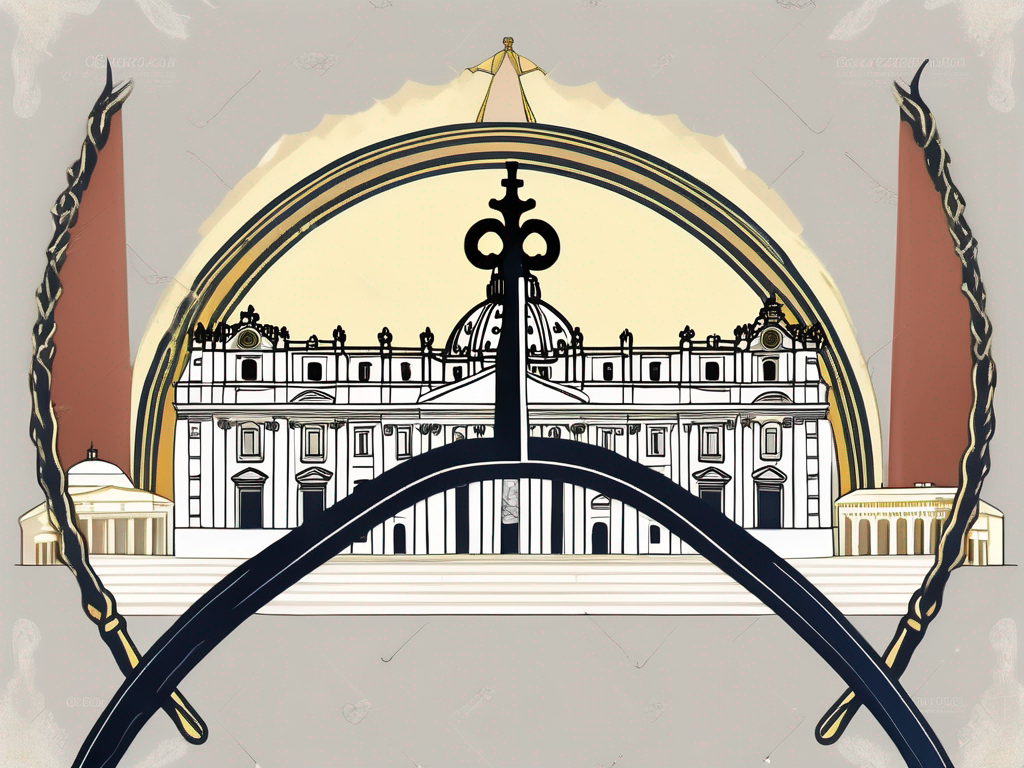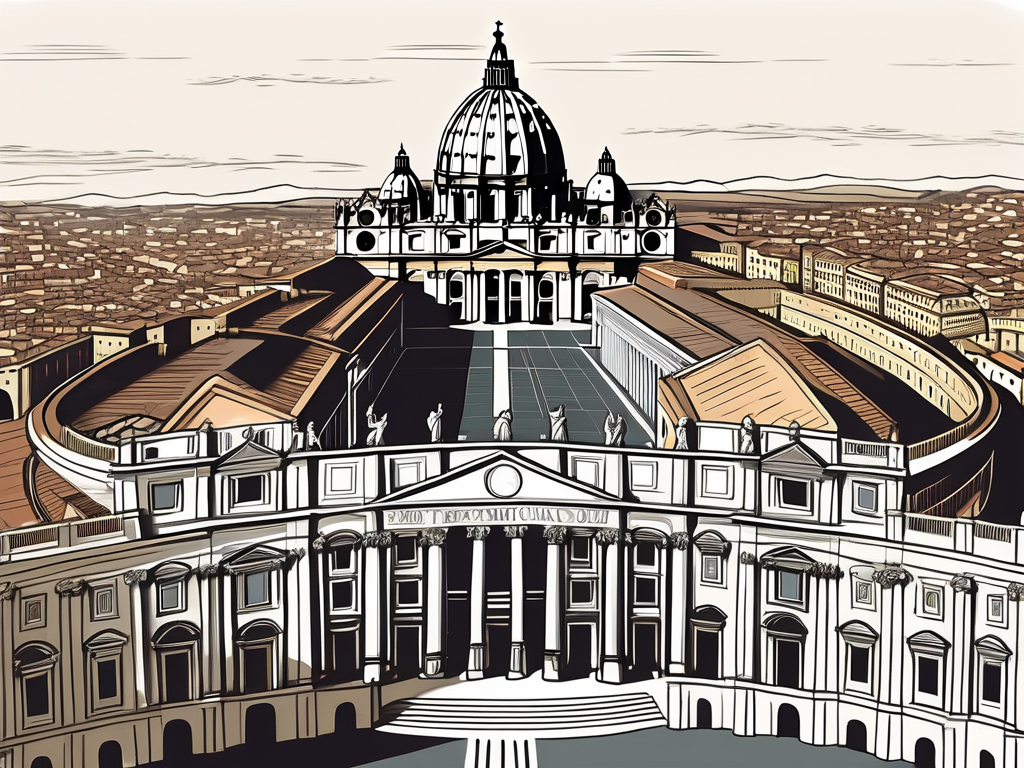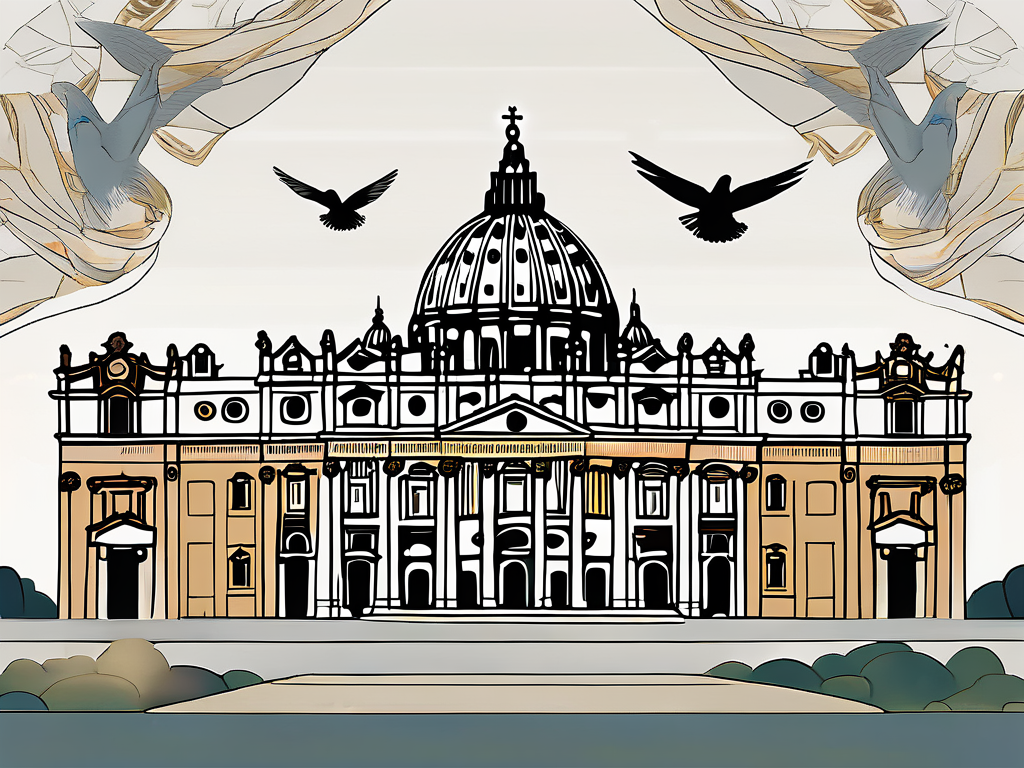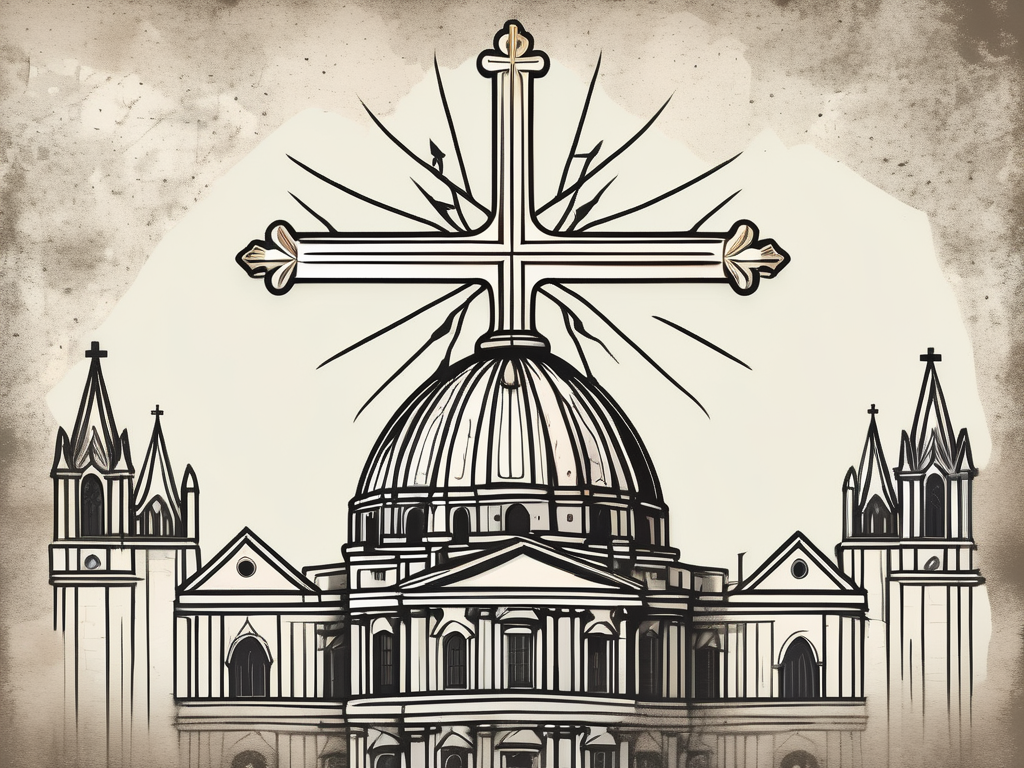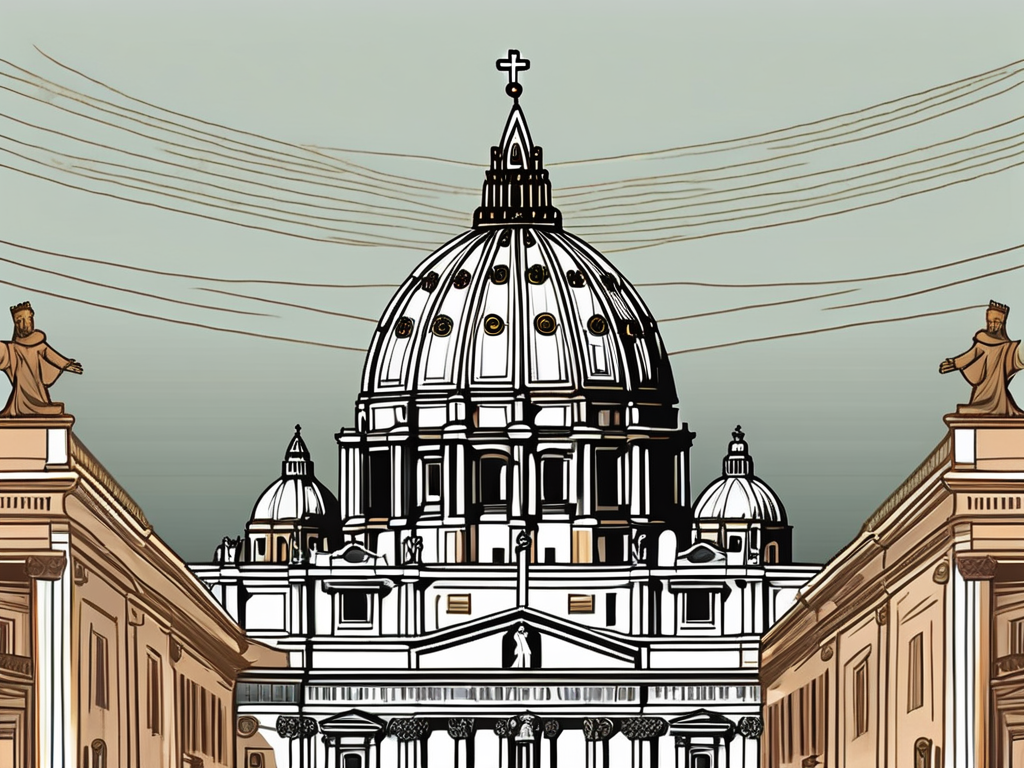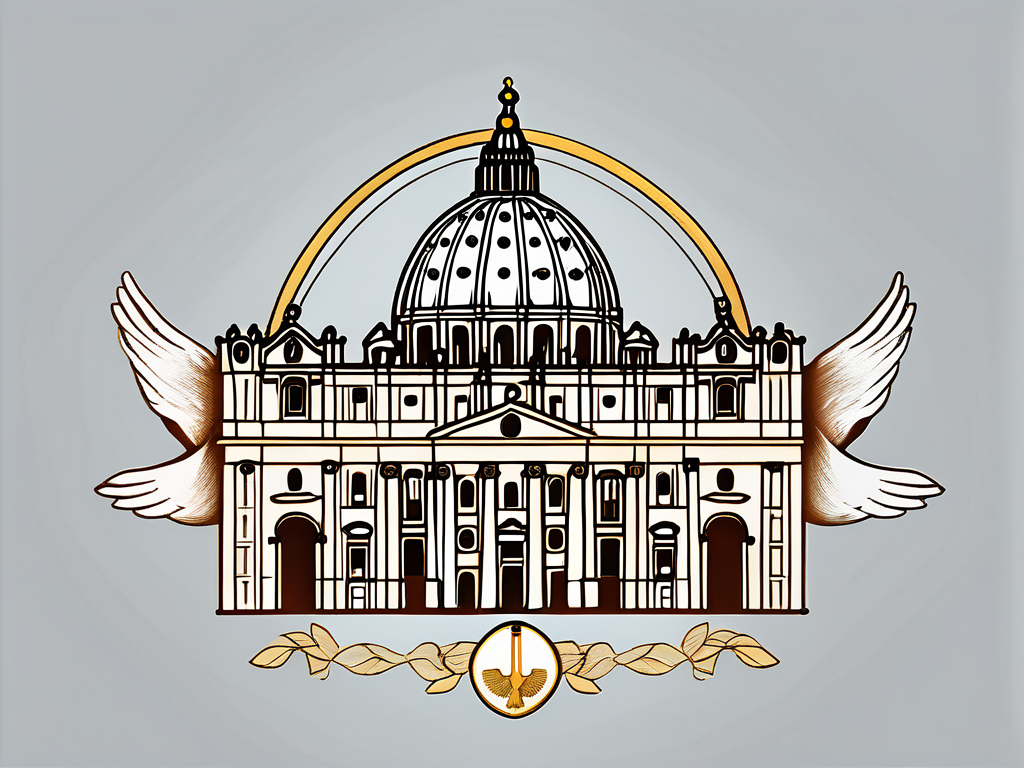Pope Nicholas V, whose reign lasted from 1447 to 1455, left an indelible mark on the Catholic Church and the world at large. His contributions to art, architecture, and the development of the Church greatly influenced the course of history. In this article, we will explore his early life, his papal reign, his impact on art and architecture, his influence on the Catholic Church, and his lasting legacy.
Early Life and Ascension to Papacy
Before becoming Pope Nicholas V, he was known as Tommaso Parentucelli. He was born in 1397 in Sarzana, Italy, to humble parents. His childhood was marked by a strong devotion to the Catholic faith and a passion for education. As a young boy, he received a comprehensive education that prepared him for a life of service to the Church.
Tommaso’s parents, Giovanni and Bartolomea, were hardworking farmers who instilled in him the values of honesty, integrity, and perseverance. Growing up in the picturesque countryside of Sarzana, Tommaso developed a deep connection with nature and a profound appreciation for the beauty of God’s creation.
His thirst for knowledge was insatiable, and he spent countless hours studying the scriptures, delving into theological texts, and engaging in philosophical debates with his peers. His intellectual curiosity and unwavering commitment to his faith set him apart from his peers, foreshadowing the remarkable path that lay ahead.
After years of hard work and dedication, Parentucelli was ordained as a priest and eventually became a prominent figure within the Church. His intelligence, diplomatic skills, and unwavering commitment to his beliefs caught the attention of Pope Eugenius IV, who appointed him as Bishop of Bologna.
Childhood and Early Influences
Nicholas V’s childhood was filled with stories of saints and religious figures, which ignited his passion for the Catholic faith. His parents would often gather the family around the fireplace, recounting tales of miracles and acts of selflessness performed by individuals who dedicated their lives to God.
One particular story that deeply resonated with young Nicholas was that of Saint Francis of Assisi. The tale of Francis renouncing his wealth and embracing a life of poverty and service to the poor left an indelible mark on Nicholas’s heart. Inspired by this example of humility and compassion, Nicholas vowed to follow in the footsteps of Saint Francis, dedicating his life to the service of God and his fellow human beings.
In addition to the stories of saints, Nicholas was also influenced by the writings of Saint Catherine of Siena. He was captivated by her eloquence, her unwavering faith, and her tireless efforts to bring about peace and unity within the Church. Nicholas saw in her a role model for leadership and sought to emulate her dedication and commitment to the Catholic Church.
Furthermore, his parents instilled in him the values of humility, compassion, and love for humanity. They taught him the importance of treating every person with kindness and respect, regardless of their social status or background. These early influences shaped his character and set the foundation for his future role as Pope.
Path to the Papacy
After serving as Bishop of Bologna, Parentucelli continued to rise through the ranks of the Church. His reputation as a wise and just leader grew, and he gained the respect and admiration of both clergy and laypeople alike. His tireless efforts to promote education, foster unity, and address the pressing issues of his time made him a beloved figure within the Church.
In 1446, Pope Eugenius IV died, and the cardinals gathered in Rome to elect a new pontiff. Parentucelli, now respected and admired by many, was unanimously chosen as Pope Nicholas V. The news of his election spread like wildfire, and people from all corners of the world rejoiced, recognizing the significance of this moment in history.
His election marked a turning point in the history of the Catholic Church. Pope Nicholas V brought with him a vision of unity, reform, and revitalization that would have a profound impact on the Church and the world. He embarked on a mission to restore the prestige and influence of the papacy, to promote peace and reconciliation among warring factions, and to promote the arts and sciences as a means of enriching the human spirit.
Under his leadership, the Vatican Library was established, becoming a beacon of knowledge and a symbol of the Church’s commitment to intellectual growth. He commissioned renowned artists and architects to beautify the city of Rome, leaving a lasting legacy of magnificent structures and artworks that continue to inspire awe to this day.
Pope Nicholas V’s pontificate was characterized by his unwavering dedication to the Catholic faith, his commitment to social justice, and his tireless efforts to promote unity and peace. His impact on the Church and the world cannot be overstated, as his legacy continues to shape the course of history.
Nicholas V’s Papal Reign
During his papal reign, Pope Nicholas V made numerous significant decisions and took action on several fronts. He sought to restore peace and stability to a Europe devastated by conflict and turmoil.
Significant Decisions and Actions
One of his most notable decisions was the promotion of scholarship and the revival of learning. Recognizing the potential of education to shape society and foster intellectual growth, Pope Nicholas V established libraries and supported the translation of ancient Greek and Latin texts.
Furthermore, he fostered a spirit of intellectual inquiry and encouraged scholars to engage in the study of history, philosophy, and the sciences. His efforts to promote education laid the foundation for the Renaissance, a period of great cultural and intellectual flourishing.
Controversies and Challenges
Like any influential leader, Pope Nicholas V faced his fair share of controversies and challenges. His papacy coincided with the rise of anti-papal sentiment, particularly in regions that were skeptical of the authority wielded by the Catholic Church.
Additionally, conflicts between the papacy and secular powers created tensions that tested the diplomatic skills of Pope Nicholas V. Despite these challenges, he remained steadfast in his commitment to the Church and sought to resolve disputes through diplomacy and dialogue.
Contributions to Art and Architecture
Pope Nicholas V’s patronage of the arts and his architectural innovations greatly enriched the cultural landscape of his time. He recognized the power of art and architecture to inspire, uplift, and communicate transcendent truths.
Patronage of Renaissance Artists
One of his most significant contributions was his support for the Renaissance artists who would go on to shape the course of Western art history. Nicholas V provided patronage to renowned artists such as Fra Angelico, Benozzo Gozzoli, and Gentile da Fabriano, among others.
These artists flourished under his patronage, producing masterpieces that still captivate audiences today. The Pope’s support enabled them to push the boundaries of artistic expression and create works that celebrated the beauty of the Catholic faith.
Architectural Innovations and Restorations
In addition to supporting artists, Pope Nicholas V also made notable contributions to architecture. He undertook the restoration of churches, basilicas, and other sacred sites, breathing new life into structures that had fallen into disrepair.
Furthermore, he commissioned the construction of new buildings, including the magnificent Vatican Library, which housed invaluable manuscripts and fostered intellectual pursuits. His architectural vision combined elements of both classical and Christian tradition, leaving a lasting mark on the architectural landscape of his time.
Influence on the Catholic Church
Pope Nicholas V’s papacy witnessed important changes and developments within the Catholic Church. He played a crucial role in shaping the doctrine and politics of the Church, leaving a profound impact that would ripple through the centuries.
Doctrinal Changes and Developments
One of his notable contributions was the promotion of Christian unity. Pope Nicholas V sought to bridge the divide between the Western and Eastern Churches, initiating dialogue and fostering understanding between the two branches of Christianity.
Additionally, he worked towards solidifying the teachings of the Church by defending the authority of the papacy and reaffirming traditional Catholic doctrines. His efforts to uphold orthodoxy ensured the continuity and stability of the Catholic faith.
Impact on Church Politics
Pope Nicholas V was also involved in the complex political landscape of his time. He engaged in diplomatic negotiations, seeking to maintain peace and stability in Europe. His political acumen drew praise from his contemporaries, and his efforts helped to prevent conflicts that could have threatened the integrity of the Church.
Legacy and Impact on History
After Pope Nicholas V’s death in 1455, his legacy continued to shape the course of history. The immediate aftermath of his papacy witnessed a smooth transition of power, a testament to the stability he brought to the Church.
Immediate Aftermath and Succession
Following his death, Pope Nicholas V was succeeded by Pope Callixtus III, who continued the work of his predecessor. The stability and reforms initiated by Nicholas V laid the foundation for the Church’s enduring influence and impact.
Long-term Effects on the Papacy and the Church
The long-term effects of Pope Nicholas V’s papacy cannot be overstated. His contributions to scholarship, art, architecture, and the development of Church doctrine continue to shape our understanding of history.
Furthermore, his commitment to unity, education, and the pursuit of knowledge set a powerful example for future generations of Church leaders. Pope Nicholas V’s enduring influence can be seen in the cultural achievements of the Renaissance, the continued emphasis on education within the Church, and the ongoing efforts to promote dialogue and understanding among different branches of Christianity.
Nicholas V’s Place in Historical Scholarship
Today, historians continue to study and analyze the legacy of Pope Nicholas V. His papacy remains a subject of interest and inspiration, offering valuable insights into the complex intersection of religion, politics, and culture.
By understanding the historical context, the decisions made, and the impact of Pope Nicholas V, we gain a deeper appreciation for the remarkable contributions of this influential pontiff. His legacy offers a lasting reminder of the power of leadership, innovation, and devotion to shape the course of history.
So, as we explore the legacy of Pope Nicholas V, let us remember the lessons and inspiration that can be gleaned from his remarkable life and papacy. His commitment to education, art, and the Church serves as a powerful reminder of the transformative potential that lies within each of us.
